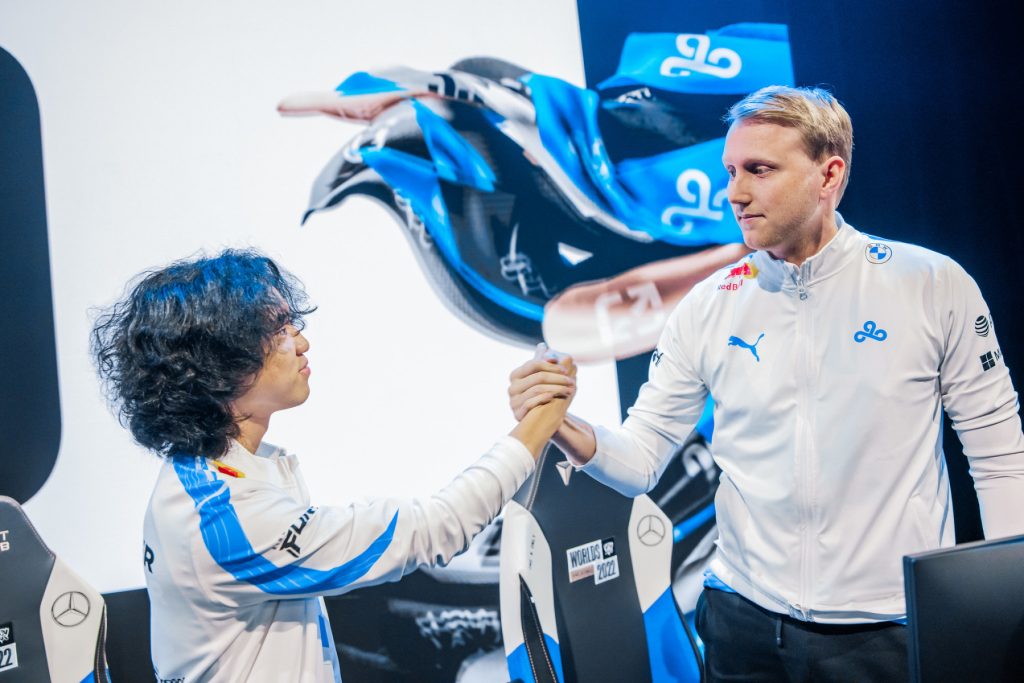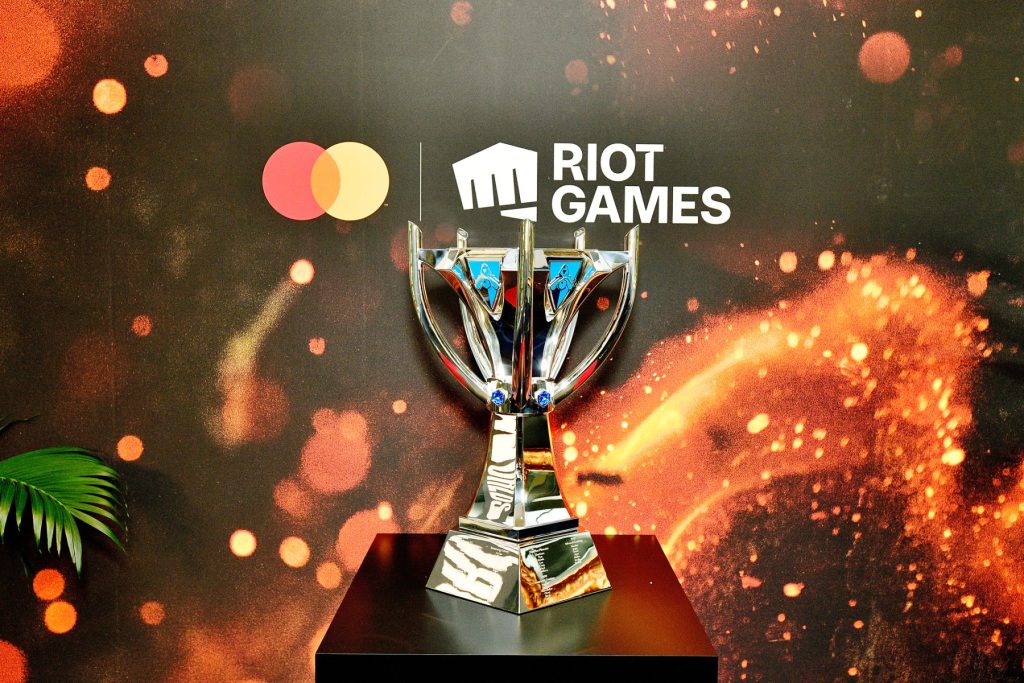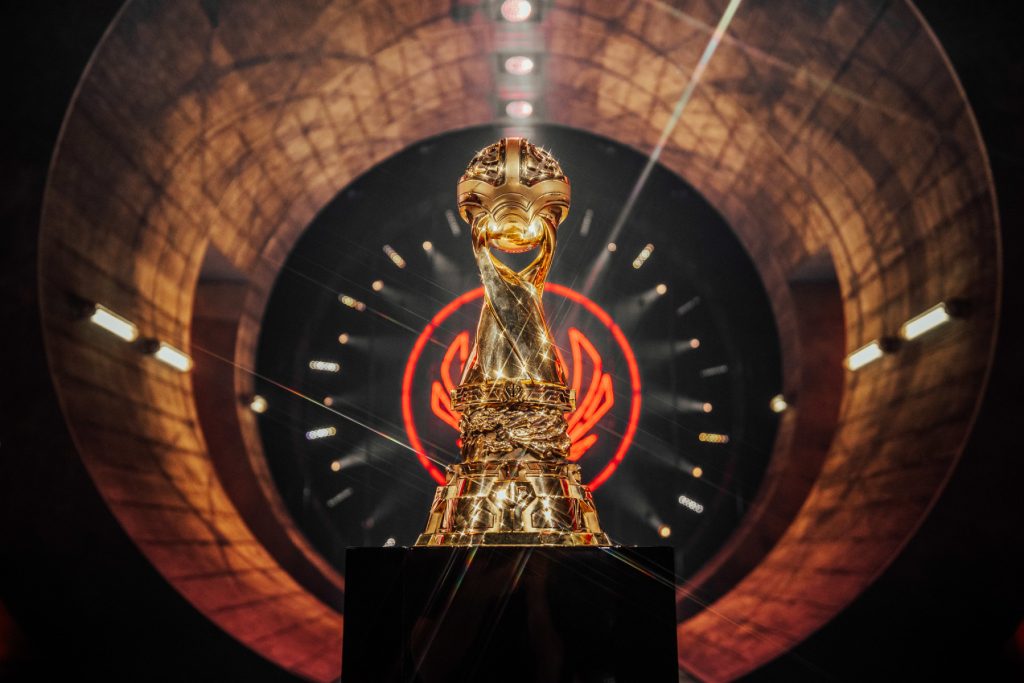
In 2020, venture capitalist and author Matthew Ball penned a blog post titled ‘Esports and the dangers of serving at the pleasure of a king’. The ‘king’ is of course the game publisher — companies like Activision Blizzard, EA, Riot Games. Three years later, it remains the best title to any piece about esports, and is one of the best pieces about the industry full stop.
I would go a step further and call the publisher ‘God’. They giveth, and they taketh away. The owner, the arbiter, the Maker; the double-edged sword — they give us the sports, and they are the greatest barrier to the sport thriving.
The supreme status of the publisher leads to awkward disputes. Other parties — players, player associations, teams — stomp their feet and act like they have power, but they do not. However impressive a performance they give, they never cease to be acolytes in service of the publisher.
Such a dispute between Zeus and mortal men has arisen of late. You may have heard about the LCS walkout vote, where players voted not to play in the LCS Summer Split’s opening week, in protest against a rule change from Riot Games which severely damaged the tier-two competitive scene in North American League of Legends (LoL).
Riot dropped the mandate for LCS teams to field academy rosters in the NACL, which led to seven out of ten teams dropping their squads. This came after teams, which are mostly struggling financially, applied months of pressure on Riot for it to provide some form of financial support, senior executives at three teams told Esports Insider.
The walkout — which the ‘overwhelming’ majority of players voted for — caused Riot to delay the start of the Split by two weeks. Such actions might give you the impression that teams and players in this industry have power. But at the deepest level, this incident reveals the laughable imbalance that players and teams will always be forced to contend with in esports. If the players and LCS Players Association (LCSPA) overplay their hand, the very real worst-case scenario is the world ending.

Last month, the LCSPA made requests (not demands) of Riot to improve the livelihoods of LCS players. Guaranteed LCS contracts for successful NACL players each year; allow organisations to partner with affiliates for cost-sharing; VALORANT-style promotion and relegation; and more. Most are quixotic and surely part of the negotiation (start high, come down slowly if necessary). But some of the LCS’s most influential players appear not to be on board with the specific asks, despite the LCSPA purporting to represent the players.
Yiliang ‘Doublelift’ Peng, a beloved and highly regarded figure in North American LoL, recently said something in a video that could be damaging to the LCSPA and the walkout, and is indicative of the pecking order of players, teams and the LCSPA in relation to Riot.
“I want to say that I care, but if it’s the option of standing by academy, and having [the] LCS Summer Split be cancelled like Riot threatened and just letting go of the situation, I’m letting go. Like, I’m letting go of the situation — I’m not so gung-ho about it that I’m willing to not play Summer Split.
“So, when Riot threatened to go nuclear, that’s a pretty big threat. I think every player was a little bit affected by that. ‘Whoa, Riot’s willing to cancel Summer Split?’ I hope the negotiations go well. I’m just telling you guys the truth — you don’t think everyone knows that?”
If Riot says no to the LCSPA’s asks, what will happen? Players may or may not continue to refuse their labour. If they do, Riot shuts down the league. No Summer Split, no NA at Worlds. This is not a bluff. The players, no matter how much labour they refuse, have no power, because they have so much more to lose than Riot does.
Is there another company the players can go and work for? Another company’s game that they can immediately compete in instead? How much would a league shutdown hurt Riot? If Riot says no to every single request the LCSPA has made, what happens next? What happens is the square root of nothing. This is all a performance because the players have no leverage. Riot is the only one with true power.
So far Riot has chosen not to wield this power to the fullest. It is humouring players and the LCSPA. Clearly it feels that on some level, its esports scene is important: whether it’s because it truly believes in it or that it’s too far invested to pull out now (the optics of that would be bad), it spends a lot of money on LoL esports each year, and as esports titles go, it’s the most impressive and farthest-reaching in the world. If Riot decided on a controlled detonation of League of Legends esports, it would be losing something quite precious.
However, if North American LoL — a chronically underperforming region on the world stage whose viewership is declining — becomes a headache, Riot could shut the whole thing down, especially if players try to unionise in the wake of this incident. It would require a settlement with teams, or a repayment of franchise fees by Riot to teams, but if the league became a thorn in Riot’s side it could end it all. The LCS would be no more with the click of a finger, and with it would go the players, the LCSPA, and dozens of jobs.
All the teams that have hung their hat on having an LCS team would lose the majority of their clout overnight. This would be a catastrophic outcome for everyone except Riot, which would suffer relatively minor losses in the grand scheme of its business (Riot loses money on the LCS every year anyway).
So, despite the dust being kicked up by the LCSPA in public — public pressure is one of the LCSPA’s only real weapons — despite the apparent stand-off between it and Riot, despite Riot delaying the start of the LCS season, despite it working with the LCSPA and LCS players to resolve the situation, Riot could kill the baby. A valuable corner of esports crumbles, while Riot trudges on like a locomotive.

Unionisation against publishers is dangerous
Would player unionisation have prevented Riot’s harmful NACL rule change? Maybe. Proper unionisation — more legally binding than a player association — might have prevented Riot’s decision being made if a union objected to it. As a result, unionisation might be on the cards in the wake of this incident. But it is dangerous.
If players mobilise in such a way, Riot, which has been tough on budding employee movements elsewhere in its company before, might come down with an iron fist. Why would a company the size of an island want to faff around appeasing a little esports union? Riot might decide the LCS simply isn’t worth the trouble.
Could players unionise against teams? Probably not; in esports, teams are pawns. During this walkout situation, Riot has threatened LCS teams to field ‘scab’ rosters if necessary (scab refers to someone who chooses to work rather than refuse their labour during a strike or labour dispute). If teams don’t field scabs, they will get hefty fines. They can’t afford that. With the click of a finger, Riot, without any input from teams, can introduce terms that resemble those that might be obtained by players through collective bargaining (for which unionisation is required), and teams would have to say ‘OK’. There is no point in unionising against teams because they too have no power. In esports, teams are at the behest of the publisher.
The only form of unionisation that makes sense for LCS players is against Riot Games. But this comes with the very real threat of the world ending.
Players and the LCSPA are screaming at God, while teams are stuck in the middle. God is playing nice but He doesn’t have to. As Doublelift’s comments indicate, LCS players — indeed, the entire esports industry — would do well to remember who calls the shots. If the LCSPA overplays its hand, Riot could flip the table and end the game, which would be fatal for all — except Riot.

